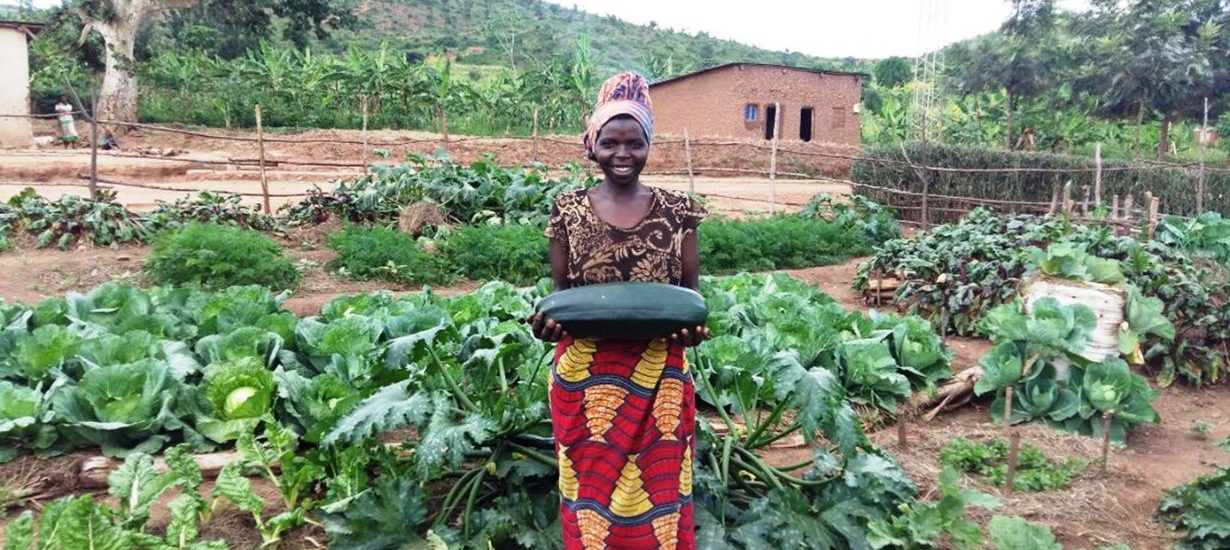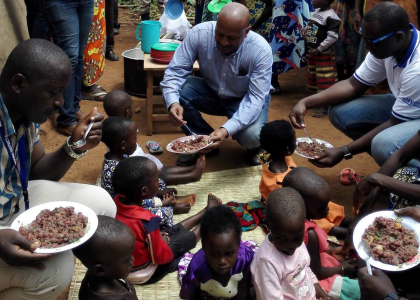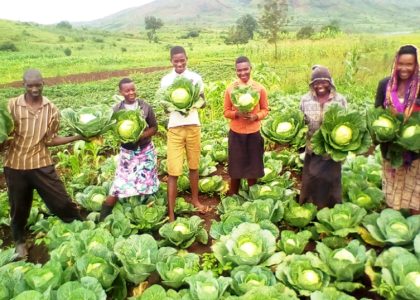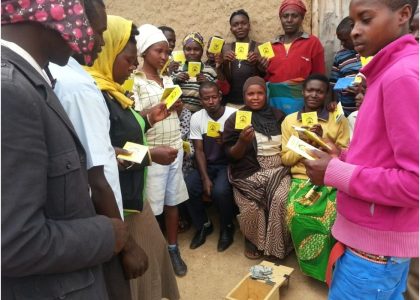Since October 2015 YWCA Rwanda has been implementing the Improved Services for Vulnerable Populations (ISVP) program in Rwanda locally known as USAID-TWIYUBAKE Program in partnership with Global Communities in Kayonza District. The overarching objective of the program is to identify 4350 vulnerable households and assist 15,000 children, youth & adults by reducing economic vulnerability and empowering parents to make investments to meet the unique needs of young children and adolescents. The program also aims at increasing capacity, improving care practices and increasing access to services. The five year ISVP program is being implemented in Kayonza District in six sectors namely ; Gahini, Mwiri, Kabare , Rukara, Murundi and Kwinkwavu.
The program ensures that there is ;
• Increased capacity of families and communities to provide healthy, nurturing, and engaging environments for vulnerable children <5 through Home visits, Positive Parenting trainings, support Umugoroba w’Ababyeyi (Parents gatherings), HTC for Children/Adults, support early childhood development, WASH, Family planning, PMTCT, ANC activities, PD/H Groups and related linkage and referrals
• Family economic vulnerability decreased through establishing and promoting Integrated Saving and Lending Groups (ISLGs), Financial Education, Microenterprise Development, Farmer Field Development, provision of household conditional grant and related linkages and Referrals
• Increased knowledge, attitudes, skills, aspirations and confidence of adolescents transitioning to adulthood through education of youth clubs on Sexual Reproductive Health and rights, HIV Prevention, Community sensitization, GBV prevention and response, career planning
• Increased capacity of communities to provide essential preventative and protective services to vulnerable families and children through training of parents and community on child protection and referral to child protection services, Referral to Isange One stop canter.
The Key achievements :
• 233 Internal Saving and Lending Groups(ISLGs) have been established through the economic strengthening component, with 5306 members, 89,824,318 francs saved and 48,467,101 francs loan distributed among members
• Households were supported to start 1,728 income generating activities
• 80 Farmer Field School established and 2310 household members have adopted the bio-intensive agricultural techniques (BIAT) within their households which has led to an increase in income and improved household nutrition in vulnerable families.
• 35 Community based and 75 Home based ECDs were established and supported more than 3219 children so far.
• 5306 parents trained on positive parenting including prevention of corporal punishment, promotion of nutrition and WASH
• 3866 children between 6-17 are enrolled in schools thanks to the program sensitization and scholastic material distribution.
• Households were sensitised on WASH practices through the home visit activity where 2508 households now have clean and covered toilets well as the 2035 have water and soap at a hand washing station.
• The program has provided contextually appropriate information and promoted positive social norms in relation to HIV and SRHR among young people(7,444 females and 1817 male) aged 10-14,15 – 19 and 20-24, since are considered to be vulnerable groups due to behaviors that expose them to the risk of contracting HIV. The program applies a case management model to ensure that households receive services tailored to their unique needs, based on clear care plans and graduation goals. With this, a total of 1600 beneficiaries have been referred to different service provider to seek services like HIV testing and counseling, family planning, HIV care and treatment, GBV care services, antenatal among others.
• 2,224 community members mobilised with messages on GBV prevention through community work (Umuganda) and International Women’s and rural days etc.





